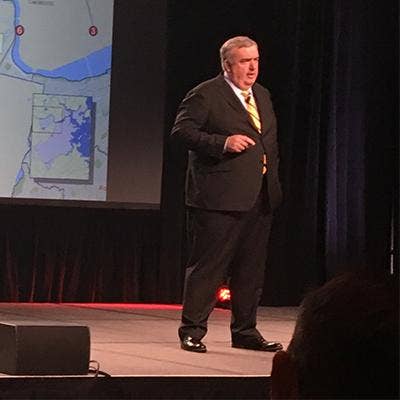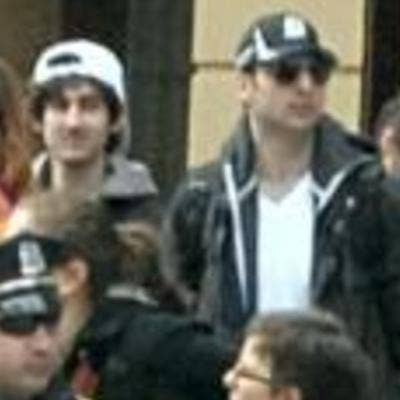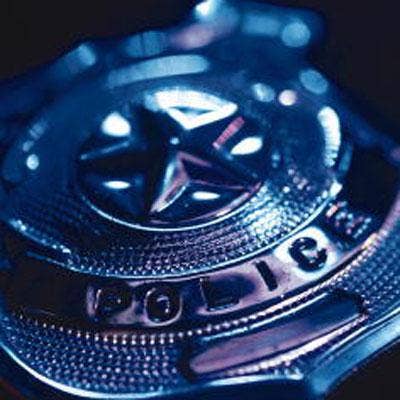CRN Exclusive: Former Top Cop Ed Davis Sounds Off On The Boston Marathon Bombing, Anti-Encryption Legislation And The FBI's Apple Hack

The Decisions Surrounding The Boston Marathon Bombing Tragedy
Edward Davis, Boston's police commissioner during the Boston Marathon bombings in 2013, recounted his experiences and decisions from that week in an interview with CRN.
Just one day before the third anniversary of the attack, Davis (pictured) discussed the events that led to the capture of one of the two suspects (the other died following a shootout), the decisions he made, and how he believes solution providers can help police departments become better equipped to do their jobs, such as replacing outdated technologies with newer, better-connected systems. The attacks on April 15, 2013, left three people dead and injured nearly 300 others.
The interview with Davis, who now heads his own security and management consulting business, came after the former Boston police commissioner received a standing ovation after a keynote address Thursday before an audience of 400 solution providers, vendors and Synnex employees at Synnex's Red, White and You conference -- focusing on public-sector technology -- in Dallas.

W hy did you push to release photographs of Dzhokhar and Tamerlan Tsarnaev [the brothers who planted the bombs] when the FBI wanted to keep them confidential ?
I said to the guys at the FBI: "If you guys are making the decision, I want the name of the guy who is making it so I can go to the press and blame him if something happens." That sent a chill through the room when I said that, but that is how serious I felt about it.
You know, they are looking to do investigations, and that is all they look at. I'm looking at public safety and it is just a different priority. If I was a detective, I would have said the same thing: "Let's get him and follow him around.’ But, there was no time for that. The FBI does espionage cases, and that is the way they are oriented in a case like this. But it was not an espionage case; this was like an active murderer … it was more like a serial killer case than an espionage case.

Do you think that once the pictures of the Tsarnaev s were released, it motivated them t o move from hiding to try and get out of the city?
Yeah, there is no doubt that it mobilized them. Tragically, you can't discount what happened to Sean Collier [the MIT police officer who was fatally shot during the manhunt for the brothers]. That was a horrible thing, but if we had given them a few more days to give them [time to] get the rest of the bombs together … then to get in the car and go to New York like they planned, we would have had another hundred people killed.
Unfortunately, you are making a decision as to whether it will be one or two lives, or hundreds of lives and it is a terrible position to be in. But it has always been my experience when you are dealing with really dangerous people like this, you always need to stay on them. You can't let up; you have to be driven. You have to drive them to the ground. It [causes them to] make mistakes.

You say public safety officials are underequipped when it comes to technology. How can we solve that problem?
Well, it would be nice if cities could devote more money to technology, specifically public safety. But, the truth is, they already spend a lot of money in that area right now just to maintain them … systems that are already out there. For new technologies, it's a hard sell in the economic environment that we are in right now to have the city devote more money to it. But I hope that the feds step up and help out with grant programs. I think they should, because this is about the administration of justice.
We talk about the police as if it is some separate group that doesn't exist inside of the criminal justice system, but it is all part of the same system. If the country has the desire to revamp justice and provide justice for people, then they should be equipping all ends of the spectrum with the best equipment to make that happen.

What technology do you think can improve the lives of officers on a day-to-day basis?
I'm a big fan of tablets in police cars. I think the technology that we have there now is really outdated. … Some of it is just terminals that have no ability to work on the Internet.
You can do an enormous amount of police work in a police car if you have a tablet, and it doesn't require anything more than access to public databases. … I was always a person that valued the ability of the officer on the street, and I want to get them the tools that they need to do their job and not control them that much. I believe that tablet computing is the answer to that, and I've been on record with that for years, and I have worked with companies trying to convince them of that.
I am a big fan of on-officer cameras. … I think the time has finally come that officers are seeing the value in it. They can't be the only people out on the street without a camera.

Can you talk a little bit about how technology can help police departments like the B oston P olice D epartment ?
Well, you have to stay current. I worked the [Philip Markoff ’Craigslist Killer’] case personally. … We went to Google, put the subpoenas out, we got the IP address, and we expected it was going to be a Starbucks or something that we were going to have to watch for a while. But the dope did it right in his living room. And this guy was a medical student, about to become a physician, top of his class. He was a really sharp kid.
If we are chasing bad guys that are using new tools, we have to be a little bit better than they are with the tools that we have to be successful. And there are guys in the departments … that come up through the system and understand technology. We need to engage men and women like this in making sure that we stay current with changes in technology.

The Burr-Feinstein anti-encryption bill was released this week. Do you think that this type of legislation is something that can be passed?
I don't think it is feasible. I try to be pragmatic about new legislation and the truth is, as long as companies exist that are beyond the reach of the United States Supreme Court and the United States Congress, it is a waste of time to do this. If you put anti-encryption on all the American phones then it will just be the [Russian] companies, the Israeli companies and the Chinese companies that build it and people will still be able to get it; it doesn't make any sense. We have to up our game to be able to break these codes or get into these phones some other way. I don't think you should handcuff business like that by giving someone a backdoor.

Do you think the FBI should have to disclose the vulnerability they exploited to get into the iPhone involved in the San Bernardino investigation?
No, I think there are police operations that should remain confidential and I think that is a perfect example of one. Transparency is fine to a point, but the Constitution is not a suicide pact. That has been used by a bunch of different people dating back to Thomas Jefferson and it is absolutely true.